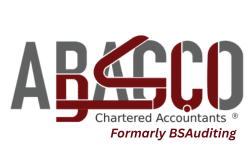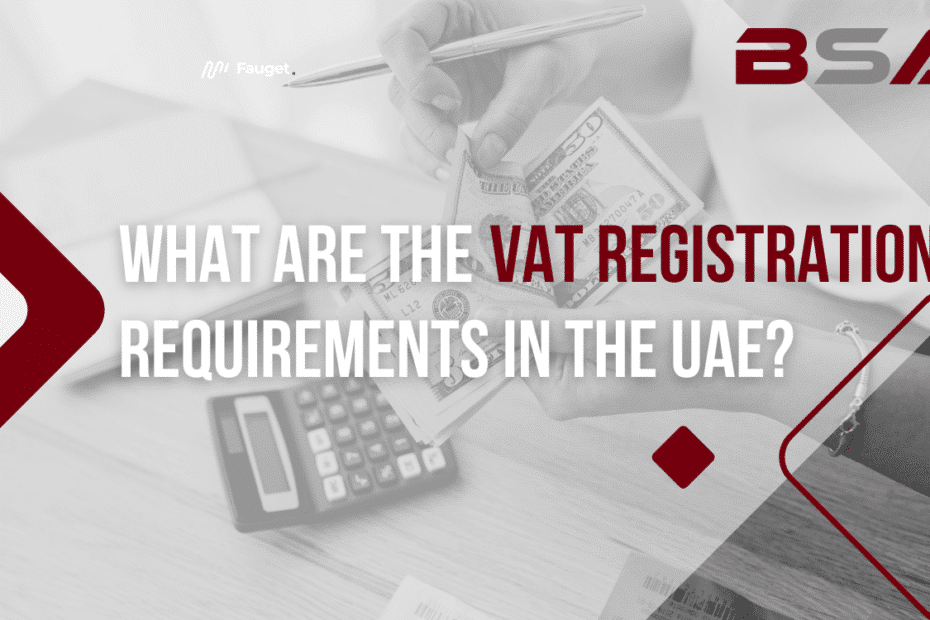In the UAE, the impacts of VAT and value-added tax are profound, and compliance cases hinge on understanding VAT registration requirements. People mainly tend to understand the VAT registration and compliance as the remit of big organizations. In reality, even small businesses find the VAT registration process very seldom straightforward. As evidenced in many studies, there is a lack of familiarity and understanding of the UAE VAT regulations. This is not to say that small businesses are not impacted in the case of compliance, contrary to most people’s opinions. In the UAE, VAT is registered, and essential attributes must be understood before registering. This blog aims to discuss such attributes, primarily focusing on the registration process.
What is VAT, and why is VAT important in the UAE?
Value Added Tax (VAT) is a tax on consumption, calculated on the cost of a sale, and implemented on rendering services at the various stages of the supply chain. The government of the United Arab Emirates (UAE) decided to introduce VAT on the 1st of January 2018 to diversify its sources from raw oil and gas supply. The VAT rate is set at 5% for the sale and provision of services consumed in the country; see the UAE VAT tax rate figure. However, other services, such as healthcare, education, and other food services, are exempt from VAT and thus referred to as zero-rated supplies.
Like any tax, a correct and accurate understanding of the VAT value added for the United Arab Emirates is crucial to businesses in the region, particularly for the work and facilitation of cross-border supply of goods and services. Avoiding malpractices such as tax evasion and thus working and abiding within the Federal Tax Authority (FTA) boundaries becomes crucial in the international trade of goods and services. Not understanding the proper boundaries of compliance, however, with the VAT law in the UAE, could result in regulatory fines and enforcement penalties applicable to VAT registration.
VAT Registration Requirement in the UAE
Every business has different needs, including the UAE VAT registration requirement. For some firms, the annual taxable supplies are high, and for others, the business activities are at a different level altogether, which requires assessment of a dozen factors. Understanding the VAT registration requirement is critical for business, and that is exactly what we are focusing on today.
- Mandatory Registration:
UAE law requires businesses whose taxable supplies (imports included) are of a value greater than AED 375,000 a year to register for VAT. It is of utmost importance to determine if VAT is payable in the UAE, to capture the yearly turnover accurately.
- Voluntary Registration:
UAE VAT law allows businesses with a taxable turnover greater than AED 187,500, but less than AED 375,000, to voluntarily register for VAT. It is to the advantage of the business that voluntary registration be considered, should the business intend to grow in the future or is planning on supplying customers who are VAT registered.
- Group Registration:
UAE law also allows businesses to group register for VAT as members of the same business or corporate group, even if they are remotely associated, which is more beneficial than separate registration. This is particularly beneficial if you are part of a large corporate group, which allows several businesses to be treated as one for VAT purposes. This simplifies the group’s VAT compliance procedure, thus enhancing the overall cash flow.
VAT Registration Process in the UAE
The UAE has a defined process for registration for VAT which one can say is simple, assuming that all basic requirements are met. However, one must remember that simple does not mean easy, for each basic requirement has its own requirement which must meticulously followed. Below is the process one must follow for VAT registration which covers the requirements stepwise.
- Required Documentation:
You should have obtained all documents needed for registration before the registration deadline. This should include documents that are listed here:
- If you are a natural person, an Emirates ID is needed; otherwise, a trade license is needed for entities.
- Ownership or all the partners’ passports,
- Evidence which shows the company’s business activities or the nature of its business,
- The business location address and all contact numbers.
- Set up an account on the Federal Tax Authority Website:
Initiating VAT registration is a simple process. All one needs is the Federal Tax Authority Website and a taxpayer account. The taxpayer account is where registration documents get uploaded.
- Fill the APP and Discharge Obligation of the Rate:
The account must not have visible gaps or contradictions, such as in the ownership records, fee structure, etc. If you are registered for accounting, you can fulfill the requirements for all the entities under your control. Fill out as much as possible after deducting the total business in operation.
- Approval from FTA:
After applying, the Federal Tax Authority has to check your information. If everything is correct, your VAT registration will be approved, and you will be issued a VAT number in the UAE. This VAT number is crucial for VAT invoicing and for VAT returns.
- VAT Registration Certificate:
After receiving approval, you will be issued a VAT registration certificate. This certificate will also feature your unique VAT number, which can be used to perform various VAT-related tasks, including but not limited to issuing invoices and VAT returns.
VAT Number in the UAE
A VAT number FTA is assigned after VAT registration completion. Registration is important in collecting VAT from customers, reclaiming VAT on VAT taxable purchases, and observing regulatory VAT guidelines. Without it, businesses cannot reclaim VAT on expenses.
A VAT number must be indicated in all invoices and tax papers. Also, ensure the VAT registration is correct and you will RTV obligations timely.
VAT Threshold in the UAE
The VAT threshold in the UAE determines a business’s VAT registration compliance. As stated before, the threshold for VAT registration is AED 375,000, which is the minimum for the total taxable supplies. Imports count as well.
For taxable supplies in the range of AED 187,500 and AED 375,000, the UAE grants the offer of voluntary VAT registration. In this situation, the business can decide to become registered for VAT. However, you do need to keep track of your taxable turnover to stay within compliance boundaries.
FAQs on VAT Registration Requirements in the UAE
- Is there a requirement for small businesses to register for Value Added Taxes in the UAE?
Businesses whose taxable supplies do not exceed AED 375,000 a year must not register for VAT in the United Arab Emirates. However, if a business’s taxable supplies are within the range of AED 187 500 and AED 375 000, the company can register for VAT voluntarily.
- How do I determine if my business needs to register for VAT in the UAE?
Any business whose taxable supplies exceed AED 375,000 a year must register for VAT. However, enterprises earning between AED 187,500 and AED 375,000 can also apply for voluntary VAT registration.
- What is the VAT threshold in the UAE?
In the United Arab Emirates, the VAT threshold is AED 375,000 in taxable supplies within a year. Businesses that do not exceed that threshold are required to register for VAT. Businesses with taxable supplies between AED 187,500 and AED 375,000 can apply for voluntary registration.
- What are the regulations for VAT registration in the United Arab Emirates?
As an applicant, a police clearance certificate must also be obtained, as well as evidence of business activity and contact information in the applicant’s name. Other particulars required include: Passport particulars of the business owner and/or partners, photocopies of the applicant’s Emirates ID, the Trade License, and a document certifying business activity.
- How fast can you obtain a VAT number in the UAE?
By law, a VAT application can be approved in about 20 days, but a lack of supplementary paperwork can hinder the application. Alternatively, many firms spend decades under the radar, hoarding profits. It might make sense to come out of the shadows if they work with firms that need VAT bills.
- Does My Company Need to Be Above the VAT Threshold to Apply?
If the total taxable supplies price to other businesses increases from AED 187,500 to AED 375,000, the business can opt for voluntary VAT registration. This is geared towards companies that wish to refund VAT and other expenditures.
Conclusion:
Every business must understand these concepts to remain compliant and avoid fines. New businesses and established ones must follow the appropriate VAT registration process so that the business operates legitimate and that benefits such as VAT reclaimable expenses can be attained. Seek a tax expert’s assistance to resolve VAT registration queries or doubts.


